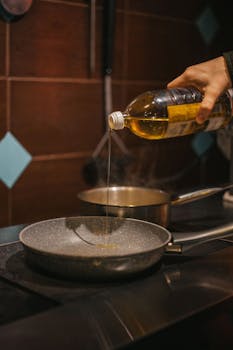It’s tempting to share your favorite snacks with your feline friend, but not all human foods are safe for cats. If you’ve ever wondered, “Can cats eat Walkers Roast Chicken Crisps?”, you’re not alone. While these crisps might seem harmless, they pose certain risks to your cat’s health. Let’s dive into the potential dangers and what to do if your cat sneaks a bite.
🐾 What’s in Walkers Roast Chicken Crisps?
Walkers Roast Chicken Crisps are packed with flavorings and ingredients designed to tantalize human taste buds. However, these same ingredients can be harmful to cats. Here’s a breakdown of what’s inside:
- Salt: Crisps are notoriously high in sodium, which can lead to dehydration, high blood pressure, and kidney problems in cats.
- Artificial flavorings: The roast chicken flavor is typically created using artificial additives, which may upset your cat’s digestive system.
- Onion and garlic powder: Even in small amounts, these ingredients are toxic to cats and can damage red blood cells, leading to anemia.
- Fats and oils: Cats don’t need the excessive fats found in crisps, which can contribute to obesity and pancreatitis.
While Walkers Roast Chicken Crisps might seem like a harmless treat, their ingredient list is not cat-friendly. Even a small amount can cause health issues, so it’s best to avoid sharing them with your furry friend.
😿 Symptoms of Crisp-Related Toxicity in Cats
If your cat has eaten Walkers Roast Chicken Crisps, it’s important to watch for signs of toxicity. Symptoms can vary depending on the amount consumed and your cat’s overall health. Keep an eye out for:
- Vomiting or diarrhea
- Lethargy or weakness
- Increased thirst or urination (from high salt levels)
- Loss of appetite
- Pale gums or difficulty breathing (signs of anemia from onion/garlic poisoning)
- Abdominal pain or discomfort
If you notice any of these symptoms, contact your vet immediately. Early intervention can prevent more serious complications.
🐱 Why Are These Ingredients Dangerous?
Cats have unique dietary needs that differ greatly from humans. Let’s explore why the key ingredients in Walkers Roast Chicken Crisps are harmful to your cat:
- Sodium: Cats require very little salt in their diets. High levels of sodium can lead to salt poisoning, which causes dehydration, vomiting, and even seizures in severe cases.
- Onion and garlic: These common flavorings contain compounds that break down red blood cells in cats, leading to anemia. Even small amounts can be toxic over time.
- Artificial additives: Cats have sensitive digestive systems, and artificial flavorings or preservatives can cause stomach upset or allergic reactions.
- Fats: Excessive fat intake can lead to obesity, which increases the risk of diabetes, arthritis, and other health problems. High-fat foods also increase the risk of pancreatitis, a painful and potentially life-threatening condition.
It’s important to remember that cats are obligate carnivores, meaning their diets should be primarily composed of high-quality animal protein. Processed human snacks like crisps don’t meet their nutritional needs and can lead to serious health issues.
🛑 What to Do If Your Cat Eats Crisps
If your cat has eaten a small piece of Walkers Roast Chicken Crisps, they may be fine, but it’s always better to err on the side of caution. Here’s what you should do:
- Remove the crisps: Keep the bag of crisps out of reach to prevent further consumption.
- Monitor your cat: Watch for symptoms such as vomiting, diarrhea, or lethargy over the next 24–48 hours.
- Contact your vet: If your cat shows any signs of illness or you’re unsure how much they ate, consult your veterinarian immediately.
- Provide fresh water: Ensure your cat has access to clean water to stay hydrated, especially if they’ve consumed salty crisps.
Acting quickly can make a big difference in your cat’s recovery. When in doubt, always reach out to a vet for professional advice.
🍗 Safe Alternatives for Your Cat
Instead of sharing crisps, consider offering your cat treats that are specifically designed for their dietary needs. Here are some healthy and safe alternatives:
- Commercial cat treats: Look for high-protein, low-carb options made with natural ingredients.
- Cooked chicken: Plain, unseasoned chicken is a great occasional treat for cats.
- Freeze-dried meat treats: These are pure protein options that mimic a cat’s natural diet.
- Catnip or cat grass: These are fun, safe options that many cats enjoy.
Providing your cat with appropriate treats not only keeps them healthy but also strengthens your bond without the risk of harmful ingredients.
FAQs
Can one crisp harm my cat?
A single crisp is unlikely to cause serious harm, but it’s still not recommended. The high salt content and artificial flavorings can upset your cat’s stomach or lead to long-term health issues if consumed regularly.
What should I do if my cat eats a lot of crisps?
If your cat has consumed a large quantity of crisps, contact your vet immediately. They may recommend bringing your cat in for an examination or monitoring them for symptoms at home.
Are any human snacks safe for cats?
Most human snacks are not suitable for cats due to their high salt, sugar, and fat content. Stick to cat-specific treats or plain, unseasoned meats for occasional rewards.
Why are onion and garlic toxic to cats?
Onion and garlic contain compounds that can damage your cat’s red blood cells, leading to anemia. Even small amounts in powdered form can be harmful, so it’s best to avoid them entirely.
Can kittens eat crisps?
No, kittens should not eat crisps. Their developing bodies are even more sensitive to the harmful ingredients in processed human snacks, so stick to a nutritionally balanced kitten diet.
References
Book a $49 online vet consultation at https://www.dialavet.com for fast, expert advice.























